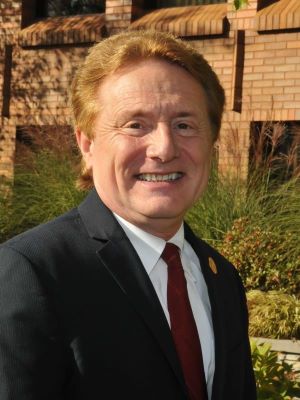
Frank Gerbasi
NURSE ANESTHESIA
Graduated in 1979
CEO, Council on Accreditation of Nurse Anesthesia Programming, American Association of Nurse Anesthetists
Q: Why did you choose Wayne State?
A: My mother recommended the WSU Nurse Anesthesia program. She was a Certified Registered Nurse Anesthetist and director of a nurse anesthesia program in Buffalo, NY. She knew Program Director John Garde. At the time, the WSU program was one of the first to award a baccalaureate degree for entry into nurse anesthesia practice.
Q: What inspired you to pursue this career?
A: My mother was my inspiration. She told me that as a CRNA, I would always have employment opportunities and be a member of a profession that was dedicated to providing safe, high quality patient care.
Q: Who was your most memorable instructor?
A: There were several great professors, including James Claffey, Prudentia Worth, Mary Vidaurri, Celestine Harrington and Nancy Wittstock. However, the most memorable for me was Dr. John Nagelhout. He taught regional anesthesia and was a clinical instructor. He was able to teach complex processes and apply them to clinical anesthesia practice. I had the opportunity to work with Dr. Nagelhout in the 1980s on several research studies. He was a mentor and encouraged me to pursue a doctoral degree in physiology at WSU, which was awarded in 1988.
Q: What was your most challenging class?
A: There were several, however the neurophysiology class stands out as the most challenging. The level of detail and degree of complexity made the class very challenging for me and my classmates.
Q: Tell us about your WSU experience.
A: My time at Wayne State as a student and faculty member provided me with opportunities for professional development and interactions with dedicated colleagues. I had many mentors who not only provided expert guidance in my professional development but provided examples on how to establish and maintain professional relationships. In addition, the educational environment provided faculty and students the opportunity to develop clinically and professionally.
Q: In your opinion, what is one of the biggest changes that has occurred in your profession since graduating?
A: Significant changes include (1) direct reimbursement in the 1980s, (2) opt-out legislative activities, (3) advancing educational requirements (master’s degree required in 1998, doctoral degree required in 2022), and (4) advances in technology and pharmacology.
Q: Tell us about your career.
A: I have served as Chief Executive Officer of the Council on Accreditation of Nurse Anesthesia Educational Programs for over 20 years. I am responsible for overseeing the accreditation activities of 136 doctoral level nurse anesthesia programs located throughout the United States and Puerto Rico. I completed my undergraduate and graduate education at Wayne State University. I started a new graduate nurse anesthesia program at the University of Michigan-Flint/Hurley Medical Center and was the program administrator for over 10 years. I provided clinical anesthesia services in Michigan for over 20 years and have been a nurse anesthesia educator for over 40 years. I serve on several MANA committees and as MANA President from 1996-97. I have published numerous research studies, authored several chapters and a textbook for nurse anesthetists. I received the Outstanding Researcher of the Year Award in 2002, Agatha Hodgins Outstanding Accomplishment Award in 2022, and was inducted as a Fellow in the American Academy of Nursing in 2023 for having a lead role in the successful transition of all nurse anesthesia programs to award doctoral degrees for entry into practice.
WSU Applebaum’s Doctor of Nurse Anesthesia Practice program is led by exceptional faculty and clinical instructors dedicated to the profession and the teaching of students using state-of-the-art teaching facility and anesthesia classrooms. The DNAP degree is 36 months, designed to offer registered nurses an advanced education and full scope of practice as a Certified Registered Nurse Anesthetist (CRNA). Graduates will also meet the requirements for the National Certification Examination. Learn more about the application process and make plans to attend a college information meeting, held for prospective students at 6 p.m. on the first Tuesday of each month.
An anchor in urban health care
The Eugene Applebaum College of Pharmacy and Health Sciences is built on more than 100 years of tradition and innovation in the heart of Detroit. We have grown deep roots in our city, harnessing its powerhouse hospital systems and community service organizations as vibrant, real-world training grounds for students, with an ongoing focus on social justice in health care. And our research at all levels – from undergraduates to veteran faculty members – translates into creative solutions for healthier communities.
Wayne State University is a premier urban research institution offering approximately 350 academic programs through 13 schools and colleges to nearly 24,000 students.